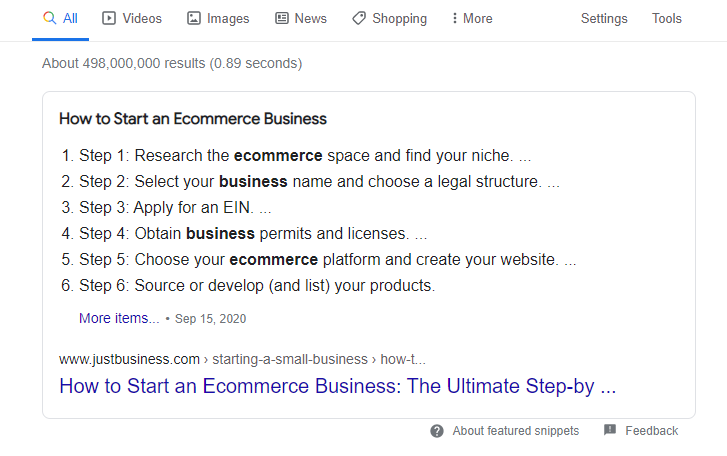What is Google Passage Ranking: Key Points You Should Know
Google likes to make changes to its ranking algorithm for a better search experience. And, Google Passage Ranking or Passage Indexing is one of the recent announcements that search engine giant has made as an additional ranking factor. There is a lot of discussion and misconception around this ranking factor because of the phrase ‘passage indexing’.
So, what is passage indexing? What does it actually mean? How big or small is the update? Is it a significant algorithm update to affect your website traffic or ranking? Let’s discuss it in detail.
The word ‘indexing’ is creating all the speculation and confusion. The Google Passage Ranking is referred to as Passage Indexing, but it has nothing to do with indexing. It just talks about individual passages of a web page and their ranking.
So, take a deep breath and relax; it is only a small ranking change in Google. There is no reason to stress about it; it is only a ranking change, not an indexing change. However, we will not say that this update doesn’t matter at all, and you shouldn’t know about it. It will have a similar ripple effect as BERT in September 2019 to impact search results based on search queries.
What is Google Passage Ranking or Passage Indexing?
With the passage indexing update, Google will start to understand the relevancy of specific passages on web pages to find the most appropriate answer for users’ queries. It is an automated feature that Google has added to its search algorithm that ranks sections within your content into search engine results for a better user experience.
Google will now pull out specific passages from web pages to answer user’s queries even if the content as a whole, talks about a slightly different topic from the search query. It will now encourage webmasters to create more informative content.
To understand it much better, take a look at the official word from Google about Passage Indexing:
“So, for example, let’s say you search for something pretty niche like ‘how can I determine if my house windows are UV glass.’ This is a pretty tricky query, and we get lots of webpages that talk about UV glass and how you need a special film, but none of this really helps the layperson take action. Our new algorithm can zoom right into this one passage on a DIY forum that answers the question. Apparently, you can use the reflection of a flame to tell and ignores the rest of the posts on the page that aren’t quite as helpful.”
What does it actually mean?
Passage ranking is more sorts of a ranking change, not an indexing change in terms of deciding whether or not a section of the page can be helpful for the user’s query. In simple words, Google can now rank a specific passage independently within your content to answer a question.
It is like another ranking factor for a better understanding of the context of passages on a page to help users with the most relevant search results. It doesn’t affect your indexing in search engine result pages for keywords you have optimized for; instead, it can rank your page for additional queries if Google finds that a section of your content can be useful for users.
For example, if you are writing about your eCommerce success story and the article has a small passage about how to establish an eCommerce business within the context, Google can pick it up for users and display it on the search for a related query on eCommerce business establishment.

Google says that passage indexing is now capable of finding “that needle in a haystack.” Google Passage ranking will help the search engine giant better understand content deeply including all sub-topics, headings, and sections, even when you have not optimized your content for those specific search queries.
Google Passage Indexing is not Featured Snippets
If you think that Google will highlight the specific passages in search results like featured snippets, then it is not true. Featured snippets are something that the search giant used to answer short questions instantly at top of search results.
Google passage ranking is not about displaying answers to your questions. It is an additional ranking factor that looks at the content of a page deeply. It enables Google to understand independent passages and their context to answer a question by delivering results in search engine result pages (SERPs).
In simple words, passage indexing is not about the display, it focuses on ranking. It will work along with other ranking factors to bring better results for search queries without making much change to SERP.
How does Passage Indexing work?
Google uses BERT and neural nets to understand the content on a page to decide search ranking. Passage indexing will now help Google understand content much better when while crawling the full page. According to Google, this update will impact only seven percent of search queries and it may not impact your site indexing at all.
However, webmasters who write long and informative content without focusing much on content optimization may see a small boost in traffic and search ranking.
One thing that we are clear about is that Google will not index individual passages independently; it will index web pages as usual. With the passage indexing update, the search engine giant will start understanding content on a page deeply in order to show the most relevant passages in the results based on search queries. It is a way to bring out the most appropriate results for a better search experience.
Will Google Passage ranking affect SEO?
There will be very little or no impact on SEO. If your site ranks well in search results, the new update may not affect your ranking at all. However, you can include some additional strategies during your content building to get the most out of this update.
- You can focus on long-form content with more information and details in the context of your article.
- You can consider additional keywords (but not overly optimized) for different passages to help Google easily understand the relevancy of each section for a search query.
- Try to cover as many as topics possible within your content.
- Answer common questions and use long-tail keywords in your content.
- When including a slightly different topic in the context of your post, make sure that it will be well-optimized for search terms.
Key take-outs for webmasters
There is not much to go crazy about this update. It will just enable Google to understand the content better than earlier to serve users better through search results. According to Martin Splitt of Google,
“It is just a smaller change where we try to help those who are not necessarily familiar with SEO or how to structure the content or a content strategy because lots of people end up creating these long-winded pages that are having a really hard time ranking for anything really because everything is so diluted in this long-form content”.
Here’re some key points that webmasters can learn about the Google Passage Ranking update:
- Passage ranking is an automated feature to pull out specific sections of your content to answer search queries.
- Google Passage ranking aims to cover multiple topics within your content for a better search experience.
- You don’t need to optimize your existing content for passage ranking.
- It may help long content rank for more specific search queries to answer specific questions.
- It is a small change in how Google Crawlers will interact with your content after the update.
- You are not required to take any action on part of your SEO strategies.
- This update will impact 7% of search queries worldwide after the rollout.
- Google will still index entire web pages as it used to. Passage ranking does not affect indexing in any way.
Conclusion
Google Passage Ranking is a great opportunity for webmasters who cover multiple topics in long-form content and don’t focus on one main topic. Google can now focus on diluted content too that has poor information structure. Even if your long-form content is not well-optimized for SEO, the passage indexing update can boost your traffic.
There is no need to make any changes to your web pages and SEO strategies. The purpose of the update is to help the search giant analyze a web page as a whole to serve a better search experience for users.
Latest posts by Vijaya Tyagi (see all)
How To Track Shopify SEO Performance & Metrics (2025) - January 14, 2025
Link Building Strategies: The Ultimate Techniques for 2025 - December 31, 2024


